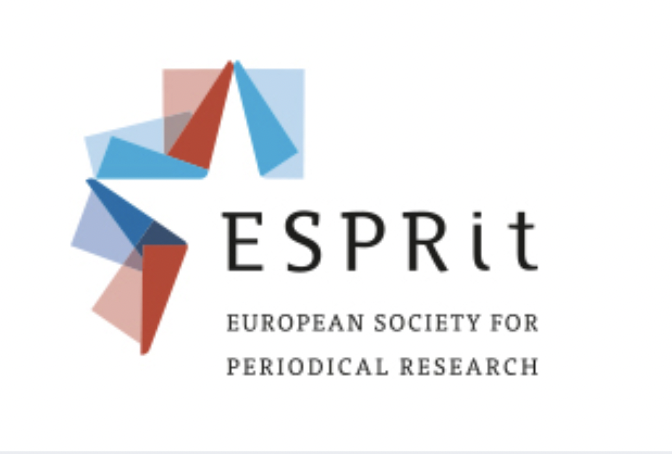Call for Papers 10th International ESPRit Conference
Periodicals beyond Hierarchies: Challenging Geopolitical and Social “Centres” and “Peripheries” through the Press
Time and venue: 8– 9 September 2022, Museum of Fine Arts – Central European Research Institute for Art History (KEMKI) – Artpool, Budapest, Hungary. The hybrid event is co-organized with the Petőfi Literary Museum (PIM) – Kassák Museum.
Scientific committee: Gábor Dobó (PIM–Kassák Musem); Dávid Fehér (KEMKI); Emese Kürti (KEMKI – Artpool); Eszter Őze (KEMKI – Artpool); Evanghelia Stead (UVSQ Paris-Saclay); Merse Pál Szeredi (PIM – Kassák Musem).
Contact persons: Gábor Dobó (dobo.gabor@pim.hu), Merse Pál Szeredi (szeredi.merse.pal@pim.hu), and Eszter Őze (eszter.oze@szepmuveszeti.hu).
For the first time in East-Central Europe, the European Society for Periodical Research (ESPRit) convenes its 2022 (10th) international conference in Budapest, Hungary, to focus on the following theme: Periodicals beyond Hierarchies: Challenging Geopolitical and Social “Centres” and “Peripheries” through the Press.
The conference should reflect on how periodicals challenge, transform or interpret the notion of “centres” and “peripheries” in a context of permanently shifting and historically unstable situations. Papers should investigate these questions through essential forums of the public sphere, namely periodicals, from the mid-18th century to the present day. The generation of knowledge, social dialogue, and transnational communication (both textual and visual) hosted by periodicals gave visibility and platforms to politically and economically “peripheral” areas, as well as socially marginalized groups. At the same time, other journals provided means to maintain cultural and political hegemony of “central” social classes or global powers.
We invite scholars to reflect on the ways periodicals represented, created, maintained, or challenged, even deconstructed the notions of “centre” and “periphery” as related to the status of their community, audience, editorial board or geographical areas.
We are particularly interested in encounters, and negotiations between geopolitical or social “centres” and “peripheries” taking place in periodicals. The conference should focus on matters, including but not limited to, such as:
- Theoretical reflections on “centres” and “peripheries” and the possible contribution of Periodical Studies to define the shifting meaning of this conceptual model
- Circulation, adaptability and reworking of periodical models and genres, including the mainstream press; middlebrow periodicals and “little magazines”
- Hybridity, performativity, materiality – how researching periodicals opens up new perspectives in literary, art and media history?
- Shifting, emerging, and declining geopolitical centres and the press, from the Napoleonic wars to the end of the Cold War and beyond
- Challenging the concept of “Eastern”, “Western”, “Southern” and “Central” – the periodicals in the entangled history in Empires – from a post-Empire perspective
- Colonization, decolonization, and the periodicals – a postcolonial perspective
- The effect of dominant discourses on marginal/”peripheral”/”provincial”/local contexts – and vice versa.
- The role of journals in social conversation, including the voice of marginalized groups in/out of/against the mainstream press: the rise of counter-publics in periodicals
- The diachronic and political dimension of artistic canons, and the role of periodicals in canonizing, theorizing, and financing art and culture
- De-centring established cultural “centres” through a transnational network of “little magazines”. Establishing “imagined communities” (a term coined by Benedict Anderson) in periodicals
The working language of the conference is English. We welcome proposals from researchers at all stages of advancement. Proposals of around 250 words (references not included) for 20-minute papers and a short CV (no more than 200 words) should be sent to 2022esprit@gmail.com by February 28 2022. We also welcome proposals for joint panels of three papers. Please include a brief rationale for the panel along with an abstract and CV for each presenter. Updates can be found on the 10th ESPRit Conference website, forthcoming.
We look forward to welcoming you to the Museum of Fine Arts, Budapest!

